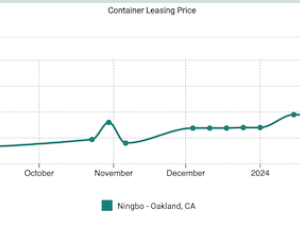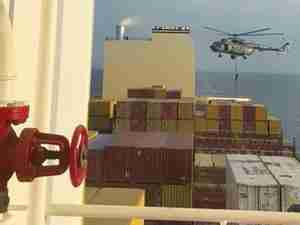“PBCF” Selected for Equipment Designated by Port of Vancouver’s Environmental Program
posted by AJOT | Feb 06 2017 at 08:19 AM | Liner Shipping
Technology to Reduce Environmental Impact Highly Evaluated
TOKYO - Mitsui O.S.K. Lines, Ltd. (MOL) today announced that Propeller Boss Cap Fins (PBCF) was selected as a vessel quieting technology by the EcoAction Program implemented by Port of Vancouver, Canada. PBCF was jointly developed by MOL, West Japan Fluid Engineering Laboratory Co., Ltd. (President: Masayoshi Ishii; Headquarters: Nagasaki, Japan), and Nakashima Propeller Co., Ltd., and is being sold by MOL Techno-Trade, Ltd.
The Vancouver Fraser Port Authority’s EcoAction Program offers discounted harbour due rate to vessels that have implemented voluntary emission reduction measures and other environmental practices. As of January 1, 2017, vessels equipped with PBCF and transiting to the Port of Vancouver will be eligible for bronze level recognition and a 23% discount in harbour dues. PBCF was selected as a technology to reduce cavitation and therefore underwater noise which impacts marine mammals ability to navigate, find prey, mate and communicate.
PBCF is an energy-saving device that reduces a vessel’s fuel consumption by 3% to 5% by breaking up the hub vortex generated behind the rotating propeller and improving propeller efficiency. PBCF’s effectiveness has been recognized around the world and the device has been installed on over 3,000 vessels since its introduction in 1987. In addition, water tank tests confirmed noise reductions of 3 to 6 decibels in a specific underwater frequency range by breaking up the hub vortex. This feature resulted in PBCF’s selection by the Port of Vancouver for the EcoAction Program.
PBCF is a product that protects the environment on different levels. It not only reduces CO2 emission by reducing vessel fuel consumption, but also is effective in protecting marine life, including whales, by reducing underwater noise caused by merchant vessels.
The MOL Group continually contributes to environmental conservation in ports and at sea all over the world, and will step up its efforts to ensure safe operation and reduce environmental impact through the “ISHIN NEXT ~ MOL SMART SHIP Project”







